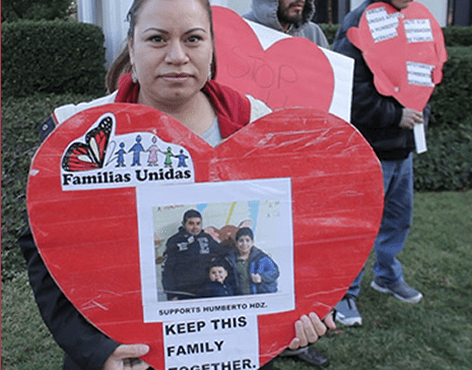
On May 3, the College of Liberal Arts and Sciences will present “From the Back of the Line,” a documentary about the lives of seven undocumented immigrants living and working in Charlotte.
This free, public screening is scheduled for 7 p.m., Friday, at UNC Charlotte Center City. A question-and-answer session with the filmmakers and a reception will follow.
Hannah Levinson, a second-year master’s student in ethics and applied philosophy, produced “From the Back of the Line” in conjunction with the Latin American Coalition and Charlotte-based Haberdashery Films
The documentary explores the impacts of current immigration policies on undocumented immigrants and their families. Levinson and fellow filmmakers used interviews and individual narratives of Charlotte residents caught in deportation proceedings, high school and college-age students who have lived in the United States since childhood and children born as U.S. citizens to undocumented parents.
Levinson garnered support for the film's production budget from a number of University partners, including the Center for Professional and Applied Ethics, Office of International Programs and Chancellor's Diversity Challenge Fund. With help from Armando Bellmas, director of communications at the Latin American Coalition, and Toby Shearer, co-owner of Haberdashery Films, Levinson launched a successful IndieGoGo campaign that resulted in 80 individual donors and funding to cover final production and promotional costs for the documentary.
Documentary viewers should walk away with a new understanding of the circumstances of undocumented immigrants and their families, said the filmmakers.
"So often, in the dialogue about undocumented immigrants and immigration reform, those whose lives are at the center of the conversation are regarded merely as statistics," Levinson said. “‘From the Back of the Line’ seeks to give a voice and face to individuals right here in our community who are directly affected by immigration policy and help us learn how to craft a better American landscape through a greater depth of understanding as citizens and as neighbors."